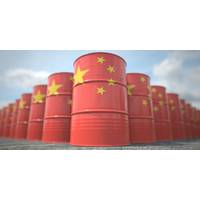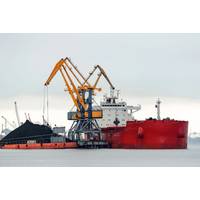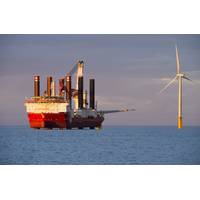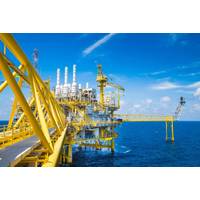BHP and Rio de Janeiro are plagued by sexual harassment lawsuits: Russell
The sexual harassment suits filed against BHP Group in Australia and Rio Tinto, global mining giants, are not just another public relations disaster or possible financial hit. These allegations threaten the future of two of world's largest miners who want to be at the forefront of the energy transformation by producing the metals required to decarbonise world economies. Deft public relations, a willingness and determination to eliminate future bad behaviour as well as a willingness to accept genuine claims can help to limit the short-term impact of class action lawsuits.
OPEC+ Passes on Oil Output Increase, Weighs the "Trump Effect"

It was likely a fairly easy decision for OPEC+ to once again delay plans to increase oil output.The soft state of global demand is by itself sufficient reason to justify the decision at this week's meeting of the group to defer winding back some of its production cuts until at least April.But weak demand growth may be the least of OPEC+'s worries as the oil market is about to be hit with the return of Donald Trump and all the uncertainty and contradictory policies that may bring.Trump's return to the U.S. presidency is likely to change the market dynamics for crude…
Commodities Weigh Trump Win, Tariff Threats

Commodities reacted with trepidation to the election of Donald Trump to a second term as U.S. President, with most losing ground over fears the global economy will be hit by a new tariff war.The downbeat reaction was in stark contrast to U.S. equities, which surged to record highs amid optimism that Trump's agenda of lower taxes will boost growth, at least in the United States.The contrasting response to Trump's victory over Democrat nominee and now outgoing U.S. Vice President Kamala Harris showed exactly why the likely impacts…
China's rapid electricification is hurting oil producers, says Russell
O Ver-estimating China's desire for crude oil has played a role in the oil markets, particularly by OPEC. This theme is likely to continue into future years. China is the leader in the transition to electric cars, having already reached 50% of new sales. The rest of the globe is expected to reach this level by 2030. According to this forecast (which is what the IEA calls the Stated Policies Scenario, or STEPS), the growth of EVs will displace around 6,000,000 barrels of crude oil per day. China becoming the model for renewable…
OPEC+ Has Oil Price and Demand Problems. It Should Solve Demand

OPEC+ has two problems and two solutions.The first problem is that crude oil prices are too low for the comfort of most of the members of the group, which pulls together the Organization of the Petroleum Exporting Countries (OPEC) and its allies including Russia.The second issue is that crude demand has so far disappointed the somewhat optimistic forecasts made by OPEC for 2024 growth.The first solution is for OPEC+ to surprise the market and change its mind on increasing output from the fourth quarter onwards.The second solution is to increase output as planned…
China Banks "Massive Volume" of Crude in May

China added to crude oil stockpiles at the fastest rate in nearly three years in May, as robust imports outweighed near-record refinery processing.A total of 1.77 million barrels per day (bpd) was added to inventories in May, the most since July 2020 and reversing the small, and rare, draw of 340,000 bpd in April.When assessing the state of China's oil market, it's common to focus on the level of imports and refinery throughput, and both have been strong in recent months.This has stoked the bullish narrative that China's re…
India Coal is Back in Business

India's coal industry celebrated the return of its major conference after a three-year pandemic hiatus by presenting a bullish view of demand, rising supply from new mines and strong demand for imports."King coal is coming back and coming with a big bang," Anil Kumar Jha, the chairman of Jindal Power Ltd., told the Coaltrans India conference, held this week for the first time since February 2020.The sentiment was echoed by virtually every speaker at the event, although there was a wide variety of views as to how successful India will be at ramping up coal domestic coal output…
Price is the Elephant in Australia's LNG, Domestic Gas Conundrum

Australia's threat to curb exports of liquefied natural gas (LNG) in order to ensure domestic supplies is another unwelcome pressure on a tight global market for the super-chilled fuel.But it's not an immediate threat, and it may also not materialize at all, depending on how the various players in Australia react to the government's planned action.What needs to be addressed effectively is the elephant in the room, namely the price at which natural gas is made available to domestic consumers relative to the price the gas companies can receive for their LNG on the global market.Australia vies with the United States and Qatar as the largest exporter of LN
Energy Opinion: China May End Australian Coal Import Ban

Talk that China may end its unofficial ban on imports of Australian coal is unlikely to result in any significant increase in shipments to the world's biggest coal buyer.Media reports last week suggested that Beijing is considering lifting the informal embargo, put in place in the second half of 2020 as tensions escalated with Canberra over a series of issues.Coal wasn't the only commodity affected, as China placed restrictions or bans on imports of barley, seafood and wine, among others.The unofficial ban was effective, with Australia going from being China's biggest supplier of coal in July 2020 to shipping hardly any of the polluting fuel by January
Opinion: Weak Crude Imports in Asia Undercuts Oil Bulls

Another month, another weak outcome for crude oil in Asia, the world's top-consuming region, with July's imports declining for a fourth month in five as demand weakened amid high prices and the ongoing coronavirus pandemic.Asia's imports for July were assessed at 21.77 million barrels per day (bpd) by Refinitiv Oil Research, a 10-month low and down from June's 23.08 million bpd.The weakness was led by China, the world's biggest importer, with July's arrivals estimated at 9.21 million bpd, a seven-month low.Kpler, which similar to Refinitiv assesses crude flows using vessel-tracking and port data, was slightly more optimistic on China's imports, estimat
Surge of Coronavirus in India Dents Bullish Crude Case

The problem for crude oil market bulls is that every time they think they have built up steam, something comes along to knock the momentum off track.The coronavirus surge in India and the imposition of states of emergency in populated parts of Japan, including Tokyo and Osaka, to deal with rising infections from the pandemic are the latest cases in point.Given that India and Japan are the world's third- and fourth-largest crude importers, it's likely that fuel demand will take a substantial hit in coming weeks.The situation appears particularly concerning in India…
China's Ban on Australian Coal Forces Trade Flows to Realign

China's effective ban on imports of Australian coal is forcing a realignment of flows between the world's two biggest importers and two largest exporters.Indonesia and Australia dominate the global seaborne coal trade, with the Southeast Asian nation tops in thermal coal, used mainly in power plants, while Australia is the biggest shipper of coking coal, used to make steel, and the number two in thermal coal.China is the world's biggest coal importer, while India ranks second.China's major coal supplier was Australia, but this ended in the second half of last year after Beijing's unofficial ban on imports from Australia…
Saudi Oil Price Hike Throws Asian Lifeline to U.S. Shale

Saudi Arabia's decision to jack up the price of its July exports to Asia may have opened the door for U.S. crude oil producers to boost sales to the region that consumes more oil than anywhere else in the world.State-controlled producer Saudi Aramco hoisted its official selling prices (OSPs) to all regions for July-loading cargoes, but the biggest hikes were for the key Asian region, which takes the bulk of the kingdom's exports.Benchmark Arab Light crude was boosted to a premium of 20 U.S. cents barrel over the Oman/Dubai average for July…
Covid-19 Catches up with Seaborne Coal in Asia

The coronavirus pandemic has finally caught up with seaborne thermal coal in Asia, as soft demand in major importers India and China sends prices to multi-year lows and dents the polluting fuel's relative outperformance against other energy.The price of low-energy coal from Indonesia, the world's top exporter of thermal coal, has dropped to the lowest since assessments were started by commodity price reporting agency Argus in 2008, while higher-quality Australian supplies have slumped to a four-year low.Indonesian coal with an energy value of 4…
Opinion: Renewable Energy Wins Over Oil and Gas in Post-Coronavirus World

Imagine waking up one morning with a deadly tiger snake in your bed. To make matters worse out of the window you notice an approaching bushfire.Both are a threat to your life, but you are going to deal with the imminent danger of the snake first, and then tackle the more distant but still serious fire. It's the same with the new coronavirus and climate change.Since the rapid spread of the coronavirus beyond its origin in China and the social and economic havoc it's wreaking across the globe, it may seem that climate change has dropped off the radar screen.Certainly…
COVID-19 Oil Demand Hit Renders OPEC+, Trump Actions Irrelevant

Imagine for a moment that the Organization of the Petroleum Exporting Countries (OPEC) and Russia had agreed at the start of this month to extend and deepen their crude oil output cuts. It wouldn't have made the blindest bit of difference.While it was only three and half weeks ago, though it feels as long as a lifetime, the collapse of the deal between OPEC and allies, including Russia, to limit output is no longer relevant in a world devastated by coronavirus.If OPEC and its allies, known as OPEC+, had agreed to extend the 2.1 million barrels per day (bpd) and add a further 1.5 million bpd…
China Can't Meet Its US Energy Commitments

The more you delve into the details of China's commitment to buy an additional $52.4 billion in U.S. energy over the next two years, the more it becomes apparent the goal is unachievable, even with the best will in the world.As part of the "Phase 1" trade truce between Beijing and Washington, China undertook to buy energy over and above a $9.1 billion baseline of U.S. imports in 2017, with a split of an extra $18.5 billion in 2020 and $33.9 billion in 2021.In practical terms this means China's imports from the United States this year would have to be more than double past record monthly imports of U.S.-sourced crude oil…
IMO 2020, China Output Pummels Asian Refinery Margins

Profits at Asian refineries are being buffeted by a combination of factors, chief among them uncertainty over how exactly new shipping fuel standards will play out and the rise of China as a product exporter.Refinery margins in Asia have been knocked to the lowest since the financial crisis in 2008 by some measures, as the industry grapples with the disparate factors.The return from processing a barrel of Dubai crude at a typical Singapore refinery was a loss of $1.19 a barrel in early Asian trade on Monday. This compares with…
For China, U.S. Soybeans are Small Fry

China's purchase of some U.S. soybeans is being viewed as a tentative sign of a little détente in the dispute between the world's two largest economies, but real progress would be a resumption of what had been a burgeoning energy trade.U.S. and Chinese negotiators are meeting for two days of talks in Shanghai starting on Tuesday amid modest expectations for progress to resolve the trade imbroglio that has resulted in tit-for-tat tariffs being imposed on billions of dollars worth of imports and exports.One of the areas where some positive movement has been seen is China's commitment to buy more U.S. agricultural produce, soybeans in particular.U.S.
Australia's Best Option is LNG Imports

Australia has painted itself into a corner with its natural gas industry and faces the stark reality that there are no easy choices to alleviate the dual problem of a looming supply crunch and the associated higher prices.Australia is far from the first country to find itself with an energy issue, but it is unusual insofar as the country is about to become the world's largest exporter of liquefied natural gas (LNG), and still it can't get its policy settings right to ensure domestic supplies.It sounds counter-intuitive and somewhat bizarre…